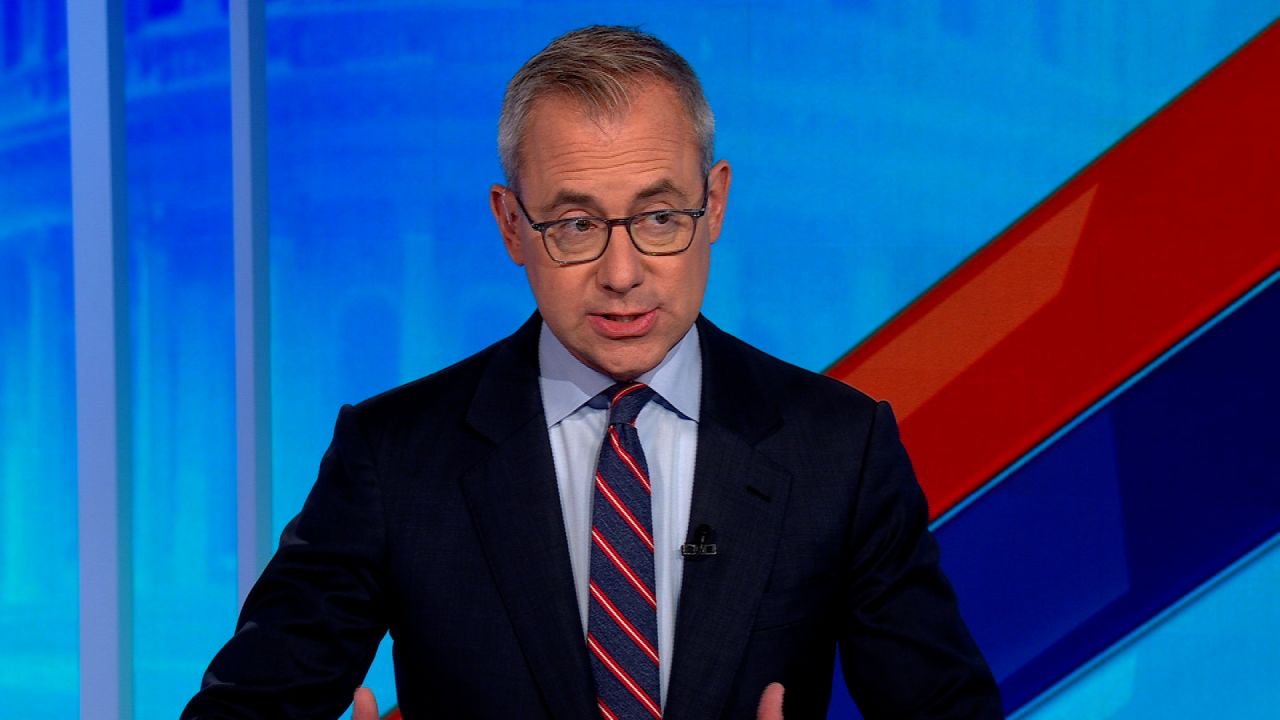In a candid moment, CNN’s Chief National Affairs Correspondent, Jeff Zeleny, offered a striking perspective on President Joe Biden’s recent pardon of his son, Hunter Biden. During a recent broadcast, Zeleny suggested that the pardon decision was not just about addressing Hunter’s immediate legal troubles but was also aimed at protecting him from future investigations that could be initiated by the incoming Trump administration.
This assertion has reignited debates about the timing and motivation behind Hunter’s pardon, adding fuel to ongoing discussions about political accountability and the use of presidential powers.
The Scope of the Pardon
President Joe Biden’s comprehensive pardon for Hunter covers all alleged criminal activities from 2014 onward, including charges related to influence peddling, tax evasion, and illegal possession of a firearm. This sweeping move effectively shields Hunter from further legal scrutiny related to these charges, even as Republican lawmakers had vowed to intensify investigations into his business dealings and financial transactions.
Critics argue that the decision to issue such a broad pardon sets a dangerous precedent. Many see it as an abuse of executive authority, designed to protect the Biden family from fallout over Hunter’s controversial dealings, including his work with Ukrainian energy company Burisma and alleged financial ties to Chinese entities.
Family Discussions Behind the Decision
According to Zeleny, the pardon decision followed extensive discussions within the Biden family, particularly in light of concerns about the incoming Trump administration’s intent to reopen or escalate investigations into Hunter Biden’s activities. The family reportedly feared that a Trump-led Justice Department could target Hunter as part of a broader effort to discredit the Biden presidency.
“This was not a decision made lightly,” Zeleny said during the broadcast. “It was influenced by a concern that Hunter Biden could be investigated relentlessly by the new administration, and the pardon was viewed as a way to preempt that.”
The pardon also aligns with President Biden’s broader message of standing by his son, whom he has publicly defended against what he calls politically motivated attacks.
Political and Legal Fallout
The pardon has drawn sharp criticism from Republicans, who view it as an attempt to shield Hunter from legitimate legal accountability. House Speaker Mike Johnson issued a statement calling the pardon a “brazen misuse of presidential power designed to obstruct justice.”
Republicans have long accused Hunter Biden of using his family’s political influence to secure lucrative business deals overseas. These allegations have been at the center of GOP-led congressional investigations, which uncovered emails and documents suggesting Hunter’s involvement in questionable financial dealings.
Many Republican lawmakers argue that the pardon will not stop their inquiries. Representative Jim Jordan (R-Ohio) has promised to continue investigating the Biden family’s financial dealings, stating, “This pardon changes nothing. The American people deserve to know the truth about the Biden family’s business practices.”
Broader Implications
The timing of the pardon, just weeks before Hunter Biden’s sentencing and ahead of President-elect Donald Trump’s inauguration, has intensified scrutiny over its intent. Legal experts have debated whether the decision was a pragmatic effort to protect Hunter from an anticipated onslaught of investigations or an overreach of presidential authority.
Critics warn that the pardon could damage public trust in the justice system, reinforcing perceptions of a two-tiered system where politically connected individuals receive preferential treatment.
“The message this sends is that the politically powerful can bend the rules to their advantage,” said Dr. Laura Simmons, a professor of political ethics. “This will undoubtedly deepen partisan divides and further erode trust in government institutions.”
Hunter’s Controversial Past
Hunter Biden’s legal troubles date back years, including allegations of tax evasion, failure to register as a foreign agent, and questionable financial transactions with foreign entities. His controversial role on the board of Burisma, a Ukrainian energy company, raised concerns about potential conflicts of interest during Joe Biden’s tenure as vice president.
The infamous “laptop” controversy added further fuel to the fire, with emails and documents allegedly recovered from Hunter Biden’s laptop suggesting that he leveraged his father’s political influence to secure business deals. While the Biden administration and its allies have downplayed these allegations, they remain a focal point for Republican investigators.
Trump’s Response
President-elect Trump has strongly condemned the pardon, framing it as a blatant example of corruption and calling it a “miscarriage of justice.” Trump has indicated that his administration will scrutinize the pardon and Hunter Biden’s dealings, promising to “restore fairness and accountability to the justice system.”
In a post on Truth Social, Trump wrote:
“This pardon is a disgrace. It’s another example of the Biden family protecting their own while Americans see their faith in the justice system erode. We won’t stop until the truth comes out.”
What’s Next?
As the Biden presidency winds down, the pardon is likely to remain a flashpoint in the broader political and legal battles between the outgoing and incoming administrations. Republican lawmakers have already signaled that investigations into Hunter Biden and the Biden family’s business dealings will continue, setting the stage for further partisan clashes in the months ahead.
Sources:
- CNN Correspondent Says the Quiet Part Out Loud – Admits Hunter Was Pardoned Out of Fear His Family Would Be Investigated by Trump
- Hunter Biden dodges questions on laptop seized by FBI
- Copy of what’s believed to be Hunter Biden’s laptop data turned over by repair shop to FBI showed no tampering, analysis says
- Republicans vow to continue investigations into Biden family
- Biden’s decision to pardon Hunter sparks bipartisan backlash

